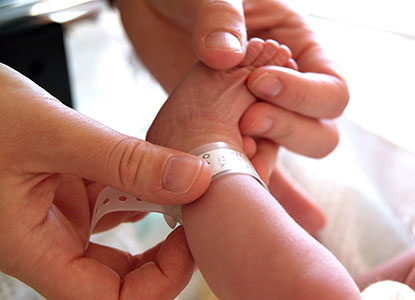By Richard Johnstone | 8 November 2013
There are ‘significant and unexplained variations’ in the quality of NHS maternity services in England and the number of midwives remains below best practice benchmarks, auditors said today.

The National Audit Office looked at how services for expectant mothers and new babies had changes since the publication of the Department of Health’s Maternity matters strategy in 2007. It found good outcomes and positive experiences for most women, with a greater consultant presence on labour wards, and an increase in midwife numbers.
However, wide variations between some trusts in terms of quality and safety, and cost and efficiency, remain.
The performance of individual trusts in relation to rates of complication and medical intervention varies widely, and litigation in maternity care has been rising.
In 2012/13, there were 1,146 clinical negligence claims relating to maternity care, equivalent to around one claim for every 600 births. This is up 80% from 2007/08.
As a result, trusts paid £482m on insurance against such claims in 2012/13, equating to around a fifth of all spending on maternity services.
Further increasing the presence of consultants on labour wards may result in better decision-making and outcomes, auditors said.
The also highlighted the fact that the NHS does still not meet the widely recognised benchmark of 29.5 births per midwife per year. This is despite a 12% increase in midwife numbers between 2007 and 2012, to 21,132 full-time equivalent posts. This equated to 32.8 births per midwife, above the benchmark endorsed by the Royal College of Midwives.
Meeting the benchmark would require around 2,300 additional midwives nationally, the report concluded.
Auditor general Amyas Morse said the department’s objectives in the Maternity matters strategy were expressed in broad terms, making performance difficult to measure.
The department had also not fully considered the implications of delivering its plans, and did not regularly or comprehensively monitor national progress.
‘NHS maternity services provide good outcomes and positive experiences for most women during a very important time in their lives,’ Morse said.
‘Since the Department of Health’s 2007 strategy, there have been improvements in maternity services, but the variation in performance across the country, and our findings on how services are being managed, demonstrate there is substantial scope for further improvement.’
Responding to the report, health and maternity minister Dan Poulter said the government recognised the need for greater investment in midwives and maternity units.
‘The NHS now has over 1,300 more midwives since May 2010 and there are a record 5,000 more in training. The number of midwives working in our NHS is increasing twice as quickly as the birth rate, and the presence of consultant doctors on maternity wards has increased significantly too,’ he said.




















